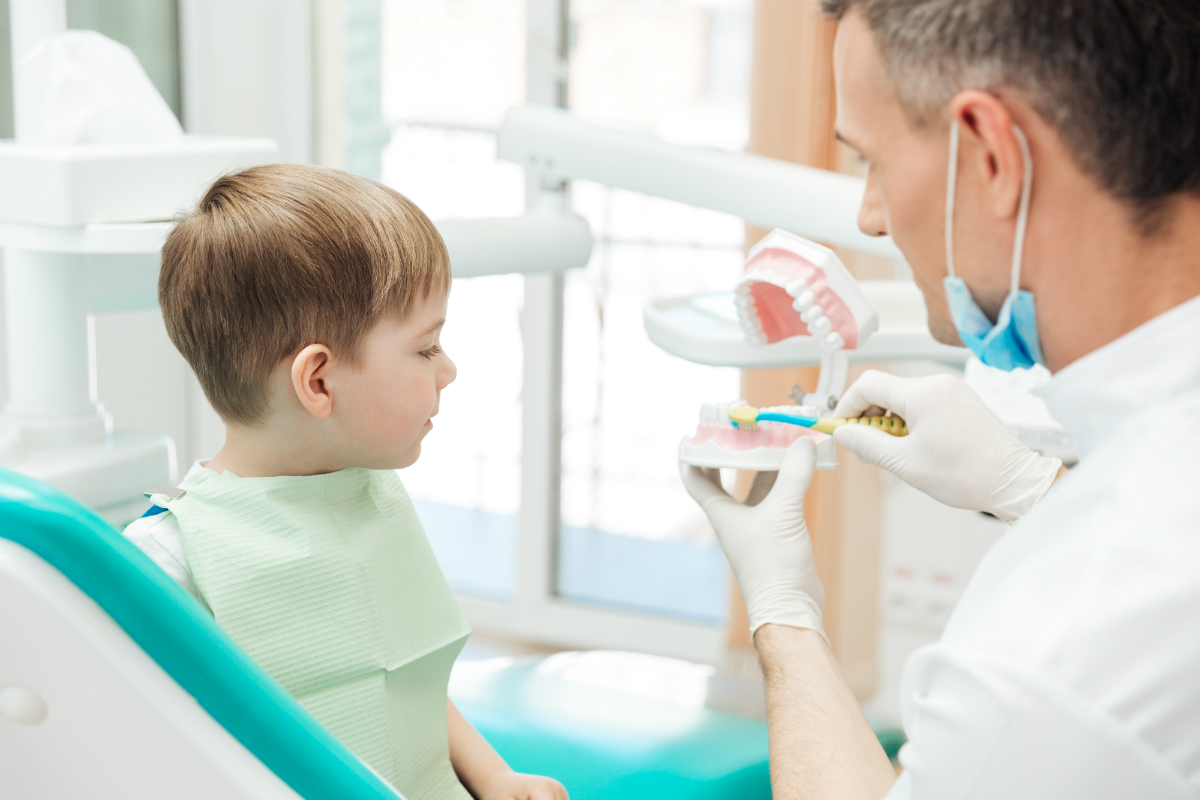Detailed information
 Children dentistry, also known as pedodontics, is a branch of dentistry that was distinguished from the rest because of the different teeth structure of children and a special care that children require. Pedodontics is mostly concerned with teeth and oral cavity diseases of children and their prevention, diagnostic and treatment.
Children dentistry, also known as pedodontics, is a branch of dentistry that was distinguished from the rest because of the different teeth structure of children and a special care that children require. Pedodontics is mostly concerned with teeth and oral cavity diseases of children and their prevention, diagnostic and treatment.
Caring about milk teeth is crucial because losing them too early may cause occlusal abnormalities and permanent teeth growth disorders. As children are very sensitive to pain and susceptible to stress, it is important to maintain a friendly atmosphere during visits. Adaptive visits are a way of accustoming children to the dental appliances and staff, most commonly in a form of a game. It helps creating a positive attitude towards following visits
-Prevention and treatment of milk teeth
Diseases of milk teeth ruin children’s teeth much faster because they are less mineralized and are thinner and softer. Regular visits are very important as their goals are prevention and early diagnosis which will cure any abnormality. During such visits a doctor reinforces child’s enamel by fluoridation and sealing of the places most susceptible to decay. If there is a need for a more complicated treatment, anesthetic or weak sedatives can be used and that will make cooperation with young patient easier.
– Prevention of occlusal abnormalities and prosthetic treatment
An extremely important matter in the prevention of occlusal abnormalities is not allowing for a premature loss of milk teeth. This may lead to the shifting of remaining teeth, speech impediments, difficulties in chewing and biting food or complications of already existing occlusal abnormalities.
The most common causes of children’s teeth loss are tooth decay or mechanical injuries. The inborn lacks of teeth buds, milk and permanent, also occur. Depending on the age of a child and the type of abnormality right orthodontics or prosthetic treatment has to be chosen.
The methods of preventing premature children’s teeth loss:
1. Right oral cavity hygiene.
2. Preventing mechanical injuries.
3. Preventing and treating tooth decay of milk and permanent teeth.
4. Preventing occlusal abnormalities.
